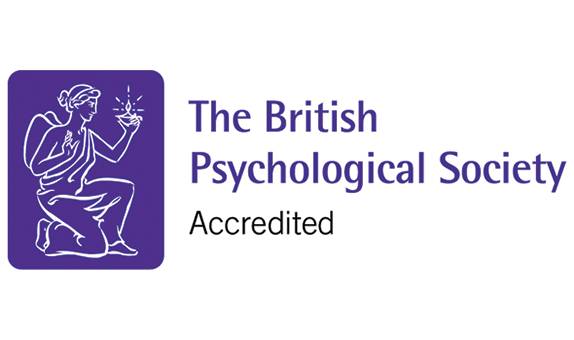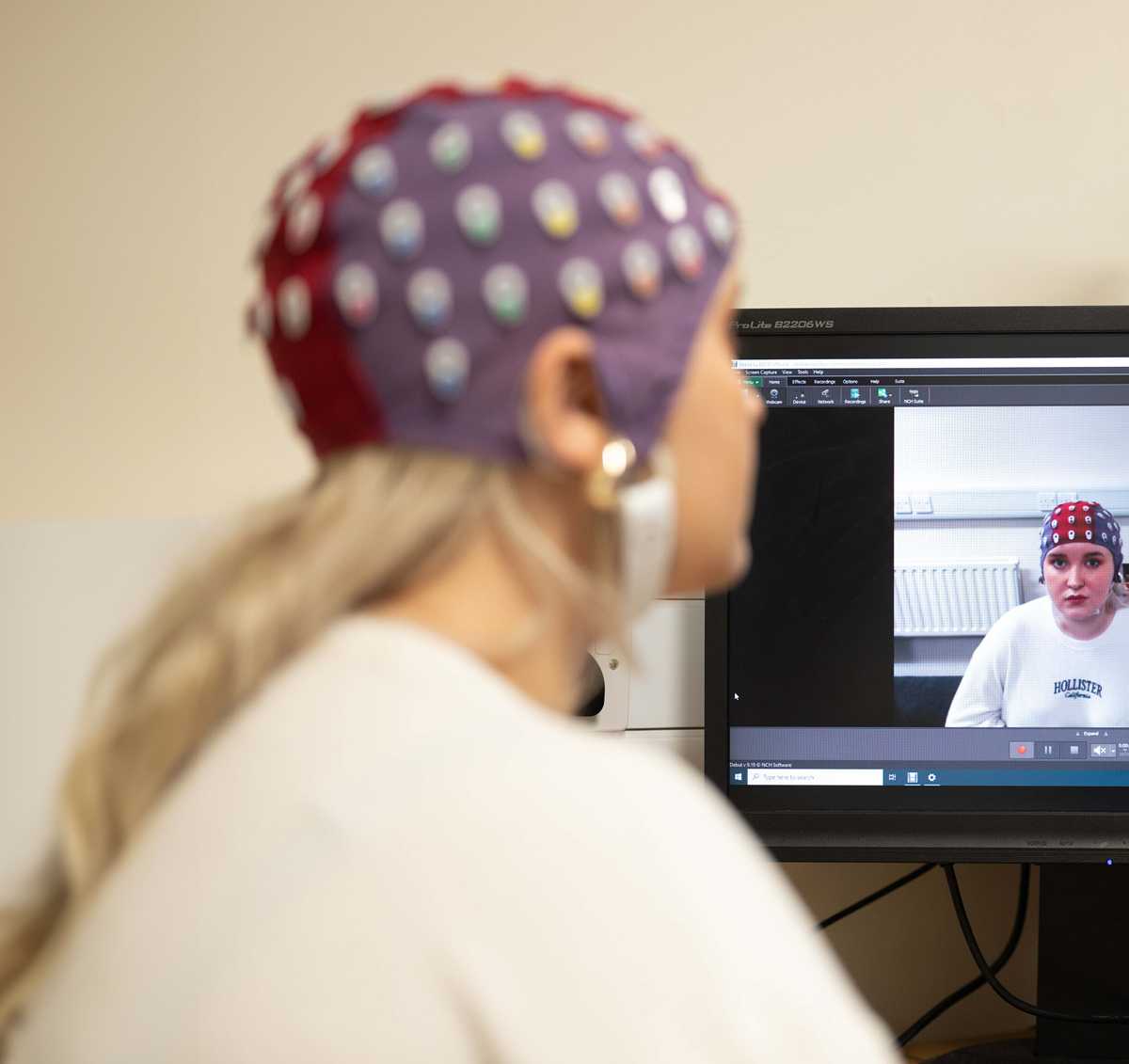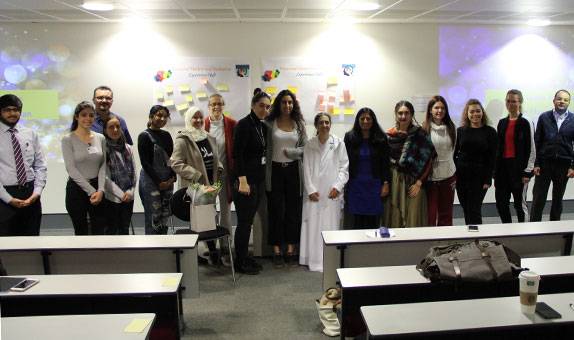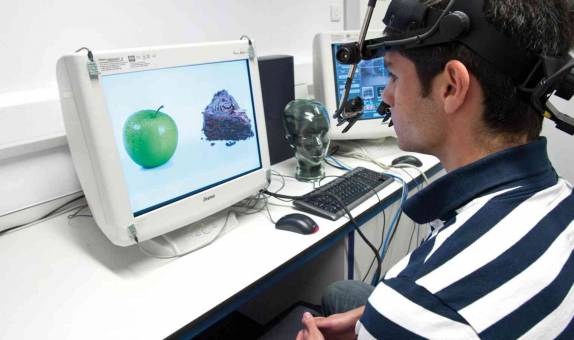Forensic Psychology BSc (Hons)

Teaching Excellence Framework (TEF) Gold award
Our commitment to high quality teaching has been recognised with a TEF Gold rating. The University has received an overall rating of Gold, as well as securing a Gold award in the framework's two new student experience and student outcomes categories.
Why choose this course?
If you've ever wondered what drives some people to commit crime, from everyday offences to high profile cases, this course may be for you. Forensic psychology seeks to understand the elements that contribute to criminal behaviour so that we can create a safer, more just society.
In forensic psychology, you will explore biological, social, developmental, cognitive, and psychological perspectives to help tackle pressing issues in the criminal justice system and society at large. You will also take several criminology modules to investigate how sociological, legal, political systems interact in shaping the way in which we classify crime and treat those who commit it.
You will develop practical skills by working with risk assessments, researching possible treatment plans, engaging with the parole process, and observing criminal trials. You can also gain valuable experience through work-based practice or observation.
| Attendance | UCAS code/apply | Year of entry |
|---|---|---|
| 3 years full time | C8C6 | 2024 (Clearing) 2025 |
| 4 years full time including foundation year | C816 | 2024 (Clearing) 2025 |
| 4 years full time including sandwich year | CC86 | 2024 (Clearing) 2025 |
| 6 years part time | Apply direct to the University | 2024 (Clearing) 2025 |
Please note: Teaching on this course may take place on more than one KU campus.
| Main Location | Penrhyn Road |
Reasons to choose Kingston University
- This is a rare opportunity to obtain a specialist forensic psychology qualification that is also accredited by the British Psychological Society.
- You'll be taught by and conduct research with forensic staff with a wide range of expertise.
- Hands-on opportunities to apply your learning to real-world issues.
- Employability is embedded throughout the course to ensure you have with the skills needed to succeed after graduating.
- You will have a personal tutor and a small tutor group of peers that you meet with regularly to support your transition to university and your academic success.
Accreditation


This course is accredited by the British Psychological Society (BPS), which means that you could go on to become a Chartered Psychologist if that is your chosen career path. This is an ongoing accreditation.
Graduates, with a minimum of a 2:2 from this course, are eligible to gain Graduate Basis for Chartered Membership (GBC) from the BPS. This is a necessary first step towards becoming a Chartered Psychologist. You would then take further training in a specific field of psychology that you want to work in. This could then lead to a career as a Chartered Psychologist in your chosen field, for example forensic psychology.
Kingston's Department of Psychology
What you will study
Take a look at some of the content and modules that you may have the opportunity to study on our Forensic Psychology course:
Year 1
Year 2
Optional year
Sandwich year
Final year
In your first year you will acquire a broad foundation of knowledge around key theories and ideas of psychological science. You will begin to critically analyse historic perspectives, contemporary issues and explore the social nature of crime and deviance. Whilst being introduced to key strategies which are used in psychological research.
Core modules
Crime, Law and Justice
30 credits
This module will provide students with an introduction to the institutions, processes and legal foundations of the criminal justice system in England and Wales. The module is core to the undergraduate degree. The module familiarises students with the language and reasoning of the criminal law and the structure and chronology of the criminal justice process. There is an emphasis on the development and practice of key academic skills especially information retrieval.
Foundations of Psychology
30 credits
This module introduces students to theories and ideas of psychological science in core areas of research. This module allows students to acquire a broad foundation of knowledge of these core areas, as well as many specialist sub-areas of psychology (e.g., biological psychology, learning, sensory and perceptual processes, memory, thought and knowledge, language, social, developmental, neuropsychology, individual differences, clinical).
Introduction to Forensic Psychology
30 credits
This module will introduce students to major areas of investigation within forensic psychology with special emphasis on how these link to core areas of the discipline (social, biological and developmental psychology and approaches to personality/individual differences). Students will also be introduced to related topics in law, court procedures and forensic science. The module will also provide some insight into the training and career pathways for forensic psychologists.
Psychology Research Methods 1
30 credits
This module is a core requirement for students taking psychology in level 4. The module will introduce you to key strategies which are used in psychological research, including designing an experiment, hypothesis testing, and statistical analysis. The main features of the module will involve the acquisition of practical skills in psychological research, learning how to apply and carry out statistical tests using SPSS, and how to report research findings.
Throughout the module you will learn how to design a research project, analyse data and report a psychological experiment.
In the second year you will examine the relationship between brain function and our understanding of cognition and behaviour. You will explore current theory and practice that focuses on the person in psychology. And start to explore mental disorders, antisocial behaviour and criminal offending. Whilst developing experimental research designs and delve further into inferential statistics
Core modules
Psychology Research Methods 2
30 credits
This module builds on the introduction to research methods and inferential statistics offered in PS4001 Research Methods 1. It will cover more advanced research designs — involving multiple independent variables — and more advanced inferential statistics such as analysis of variance, regression analysis and factor analysis. It will also introduce students to qualitative research methods and data analysis. Students will learn to develop and implement multifactorial experimental designs through practical research exercises and a project. Students' scientific writing skills will be further developed on the basis of a series of lab reports.
Brain, Behaviour and Cognition
30 credits
This module covers major topics within the field of cognitive psychology and examines the relationship between brain function and our understanding of cognition and behaviour. You will be introduced to key theoretical explanations proposed to account for human cognition, alongside some real-life applications of cognitive psychology. You will study the structure and function of the nervous system before examining the contribution of specialised brain structures to cognitive functions such as perception, attention, language, memory and decision making, and behaviours such as motivation, eating, emotion and sleep. You will also learn about the effect of hormones, drugs and neurological dysfunction on cognition and behaviour.
Social and Developmental Psychology
30 credits
The module covers a broad range of key theories and empirical research in social and developmental psychology. You will study current theory and practice in psychology across range of topics that focuses on the person in psychology. We will explore the importance of culture, ethics, the scientific approach and the notion of measurement.
Forensic Mental Health and Criminal Behaviours
30 credits
This module will introduce students to the associations between mental disorders and antisocial behaviour and criminal offending. Consideration will be given to the predisposing and precipitating factors that influence antisocial and criminal behaviour among those with mental disorders. Students will be introduced to the reasons for assessing risk and the validity of the instruments used. Students will also gain knowledge about the police investigative process and approach of the criminal courts to those with mental disorders and their disposal.
Study abroad optional year
This course has a sandwich year option which takes place between Year 2 and your Final Year. During this sandwich year you will take a placement within a relevant setting, ensuring you gain essential experience to add to your CV and help you secure a graduate job.
In your final year you will be able to choose from selection of optional modules, which cover a range of topics, this will enable you to tailor your studies to your own interests and aspirations. You will also research a chosen topic for your dissertation.
Core modules
Psychology Research Project
30 credits
This module will provide the opportunity to study and employ different methodologies in psychology by evaluating the strengths and limitations of different research designs. Students will execute an empirical research project on a topic agreed in consultation with a Psychology staff supervisor. Supervisory sessions with an academic supervisor will guide students to conduct a literature review, formulate a research question, design a research study, and consider research ethics relating to their study, culminating in data collection and writing up of a research report which satisfies APA guidelines.
The Psychology of Investigations and Cyber-Behaviour
30 credits
This module will focus on psychological aspects of investigations and will combine theoretical and practical approaches to activities central to the investigative process such as interviewing, identification, profiling, decision-making and deception. In addition, the module explore the psychological and behavioural underpinnings of feelings of security, and describe psychological factors in various measures that police, government, and security personnel take in ensuring the security of people in the community.
Optional modules
Transnational Crime
30 credits
The aim of the module is to introduce you to relevant issues within the realm of globalisation and transnational crime: e.g. terrorism, environmental crime, piracy, human trafficking, criminal networks and cybercrime. It will enable you to develop a detailed comprehension of the complexity of these criminogenic experiences.
The course opens with consideration as to what transnational crime is and how it is researched. Various topics are then examined to illustrate the dimensions of transnational crime over the following weeks. Topics include organized crime; sex trafficking and pornography; illegal markets; problems caused by crimes against the environment and the role of technology in perpetrating crime across the globe. Politically motivated crimes such as terrorism are considered, including the interaction between terrorist discourses and the media, the work of international law enforcement bodies in relation to global security and counter-terrorism. Alongside the structural and political aspects of crime, the module also considers interpersonal and cultural experiences of harm, for example, violence against women and honour-based violence.
Neuropsychology and Neuro-rehabilitation
30 credits
There are two main streams in this module: Part I - Neuropsychology. The module will place a particular emphasis on understanding the effects of brain activity on cognitive and social aspects of human behaviour (and vice-versa). In addition, the module will address the effects of brain injury and neurological impairments with a view to understand models of normal cognitive and social functioning. Video material will be used to illustrate clinical cases when available. Part II – Neuro-rehabilitation. The module will introduce students to modern techniques for the diagnosis of neurological disorders and their neuropsychiatric implications. Interventions for the treatment and management of neurological disorders will be evaluated. Students' effort and engagement will be essential for a successful and rewarding experience. This will include active participation in lectures and the reading of the indicated material.
Human Rights and Political Violence
30 credits
Based on the broad theme of the universal versus the particular, this module explores the interaction between identity, violent conflict and the abuse of human rights. It provides students with the opportunity to consider how protracted conflicts may be better resolved more effectively and human rights better protected. The module blends theoretical discussion of political violence with an analysis of recent conflicts and the legal and institutional mechanisms which have emerged to reduce their detrimental impact on human rights.
Risk and Crime
30 credits
This module explores the rise of risk and insecurity in relation to crime as a condition of existence in late/post modernity. Risk is a dynamic and fluid concept. It currently dominates our lives and this module examines risk-taking and risk strategies in the domains of crime and criminal justice. Risks from, for example, gun crime, knife crime, terrorism, fraud, hate crime, youth crime, domestic violence, sexual abuse, corporate crime and internet crime are major concerns. In recent years, the governance of crime (from policing and crime prevention to sentencing and prison organisations) has moved away from a focus on reforming offenders towards preventing crime and managing behaviour using risk techniques.
Contemporary social theorists (such as Ulrich Beck and Anthony Giddens) argue that the predictability, certainty and security that were characteristics of modern society are being questioned in contemporary societies. This results in a world that is increasingly perceived as uncertain and dangerous and in which ‘risk' is endemic. This module provides a forum in which the issues of risk as they are associated with crime can be debated and subjected to empirical scrutiny. In order to explore risk in contemporary crime governance and risk in criminal activity students will examine theoretical perspectives and political approaches.
Students are required to examine theories their own assumptions about risk and crime in terms of theoretical approaches, to undertake a fieldwork analysis about risk and criminal justice and to write a case study on an area of risk and crime of their own choosing.
The Politics of Crime in the Black Atlantic
30 credits
The module studies the role played by race in all aspects of the criminal justice systems in the United States and United Kingdom. It takes as its point of departure Professor Paul Gilroy's 1993 concept of the ‘Black Atlantic' as a cultural-political ‘space of hybridity' involving Africa, America, Britain and the Caribbean, and we use that concept to examine the extent to which crime and the criminal justice system have been politicised.
Advanced Issues in the Psychology of Thinking
30 credits
This module explores the psychology of higher cognitive processes, such as thinking, reasoning, judgement and decision-making. You will be encouraged to evaluate critically whether human thinking is rational, and the normative models with which that rationality is measured. The module will also introduce you to quantitative models of these processes as well as applications of cognitive psychology research, especially in terms of judgement and decision making in areas such as politics, sports, economics and health.
Criminology and the Law
15 credits
This module brings criminological theories and perspectives to bear on the uses of criminal law in contemporary societies. Students will have the opportunity to think critically about selected current and emerging topics in criminal law and explore how the relationship between the elements of crimes and the processes of criminalisation change over time.
As new technological developments present challenges to existing frameworks in criminal law, offending behaviour in cyberspace and the uses of artificial intelligence in the delivery of criminal justice raise important criminological issues in law reform. Similarly, popular and media narratives about social disorder often expose the limits of the criminal law and how such limits may be justified – should the criminal law have a place in the construction of the self and identities in public and private spheres?
The module examines a range of current and emerging problems that raise questions about law and power in crime control, individual autonomy and consent, security and liberty in criminalisation and decriminalisation, surveillance technology in law enforcement, and the protection of vulnerable groups.
Applied Social Science: Work and Volunteering
30 credits
This is a Level 6 optional module that draws upon social science debates and knowledges. Students will learn by observing and undertaking work-based practice. The principle underlying this module is that worksites are important contexts for students to test, validate, expand upon, supplement and enrich their academic learning.
The module requires students to undertake a minimum of 40 hours of fieldwork in an organisational setting. The form that the fieldwork will take will depend upon the type of placement secured, but, typically it may involve interning, shadowing or volunteering in subject relevant placements (for example across social justice, criminal justice/crime prevention, welfare and support fields).
Whilst in their placements students are encouraged to think about the social aspects of organisations and working life, including their structural forms, interpersonal relationships and their practices. Students will be supported in securing their placement at Level 5 in preparation for the commencement of the module at Level 6.
Migration in a Global Context
15 credits
Global migration has intensified rapidly since 1960, with the UNPD estimating an increase from 80 to 210 million by 2009. It has become a contentious political topic with far-reaching consequences for contemporary societies, and arguably for established sociological paradigms (e.g. methodological nationalism).
The module will equip students to understand and investigate in depth the social dynamics of migration and its consequences, and enable them to offer informed and critical comment on contemporary debates (e.g. media coverage of migration, on the economics of migration, and on migration's consequences for social solidarity). It is organised to reflect on social issues such as social mobility, poverty, gender and education, inequality and citizenship as they relate to different types of international mobility, and to explore fundamental consequences of migration for shaping social relations at local and global levels.
This module will introduce students to current trends in migration flows, to the different types of human mobility and the dynamics behind them, and to governments' responses to the social, political and legal challenges raised by international migration. In addition, students will have the opportunity to develop their own professional thinking in this field.
Genocide and Crimes Against Humanity
30 credits
This module will be examining some deeply troubling events in recent history and politics and the various ethical, legal and political responses that they have generated. It has been argued that the Holocaust was a critical turning point, a catastrophe which required a fundamental ethical, legal and political rethinking of how the rights of human beings could be protected when states in the modern world engage in the systematic attempt to murder large numbers of people, including many of their own citizens.
The module begins with reflections on the Nazi attempt to eliminate a whole group of people (the Jews) and to murder and enslave millions of others. It then considers a range of responses, including the Nuremberg trials, the Genocide Convention, and the Universal Declaration of Human Rights. It examines a number of cases of genocide and crimes against humanity that have nevertheless occurred subsequently. It evaluates the repeated failure for decades to halt or prevent these crimes and then considers the rethinking caused by the genocides in Yugoslavia and Rwanda, and the setting up of ad hoc tribunals and an International Criminal Court to prosecute perpetrators and provide justice to victims.
It concludes with reflections on how much progress has been made in protecting citizens in a world of sovereign nation states and what forms of justice can work after such crimes have been committed. These are highly contested questions and the module is designed to encourage the critical analysis and evaluation of a wide range of arguments that have been put forward from a variety of perspectives.
Psychotherapeutic Psychology and Mental Health: from Theory to Practice
30 credits
This module examines how psychology is applied in psychotherapeutic work in mental health contexts. It is relevant to students who are interested in counselling psychology, clinical psychology, psychotherapy, counselling and/or in mental health service provision more generally.
The module begins with a consideration of how common forms of psychological distress and disorder are conceptualised within mainstream classification systems. After psychotherapeutic approaches are placed in historical context, the module considers the theory and practice of various psychotherapeutic approaches. Attention is given to how specific mental health issues can be addressed in therapy, how therapy can respond creatively and ethically to diversity issues, and how therapeutic impact or effectiveness might best be evaluated.
By completing this module, students will develop a critical understanding of the nature of psychotherapeutic practice and of some key aspects of its complexity and challenges. The module will consider the principles and challenges of psychotherapeutic practice but students will not engage in any form of psychotherapeutic practice during the module, nor will it qualify them to do so afterwards. However it will help inform students' decision-making about careers in the psychotherapeutic and mental health fields.
Please note
Optional modules only run if there is enough demand. If we have an insufficient number of students interested in an optional module, that module will not be offered for this course.
Foundation Year - Social Sciences
If you would like to study this degree at Kingston University but are not yet ready to join the first year of a BSc (Hons) course, you may want to consider studying this course with a foundation year.
Future Skills
Knowledge to give you the edge
Embedded within every course curriculum and throughout the whole Kingston experience, Future Skills will play a role in shaping you to become a future-proof graduate, providing you with the skills most valued by employers such as problem-solving, digital competency, and adaptability.
As you progress through your degree, you'll learn to navigate, explore and apply these graduate skills, learning to demonstrate and articulate to employers how future skills give you the edge.
At Kingston University, we're not just keeping up with change, we're creating it.

Kingston School of Law, Social and Behavioural Sciences
The School offers courses in economics, sociology, law, psychology and criminology. Our degrees are underpinned by a vibrant research culture and delivered by a blend of practitioners and academics who are dedicated to equipping you with the employability skills to thrive in your career.
You will have a wealth of opportunities outside the classroom to further your learning and gain hands-on experience in your chosen field.
Life on the course
After you graduate
This degree is the first step toward a fulfilling and challenging career. Graduates may find work in the prison and probation service, the court system, police departments, community rehabilitation settings, or in policy-making roles.
Specialist careers support
You will take part in an Assessment Centre Experience, providing the opportunity to experience the pathway to employment with tailored feedback to help develop your employability skills for the world of graduate employment.
- Develop your understanding of the jobs market, including current trends and opportunities, different recruitment processes and how to identify relevant roles
- Receive personalised feedback reports to help you to improve and progress
- Access additional webinars on top tips, employer expectations and best practice

Entry requirements
If you would like to join us through Clearing 2024, please call our Clearing line on 0800 0483 334 (or +44 020 8328 1149 if you are calling from outside the UK) and speak to our friendly and knowledgeable hotliners who will be able to provide information on available courses and will guide you through your options.
Please note the entry requirements listed below are for 2025 entry only.
Teaching and assessment
Scheduled learning and teaching on this course includes timetabled activities including lectures, seminars and small group tutorials.
Who teaches this course?
You will be taught by an experienced teaching team whose expertise and knowledge are closely matched to the content of the modules on this course. The team includes senior academics and professional practitioners with industry experience. Postgraduate research students may also contribute to the teaching of seminars under the supervision of the module leader.
The following group of staff members are currently involved in the delivery of different elements of this course. This pool is subject to change at any time within the academic year.
Course fees and funding
Additional costs
Depending on the programme of study, there may be extra costs that are not covered by tuition fees which students will need to consider when planning their studies. Tuition fees cover the cost of your teaching, assessment and operating University facilities such as the library, access to shared IT equipment and other support services. Accommodation and living costs are not included in our fees.
Where a course has additional expenses, we make every effort to highlight them. These may include optional field trips, materials (e.g. art, design, engineering), security checks such as DBS, uniforms, specialist clothing or professional memberships.
Key information set
The scrolling banner(s) below display some key factual data about this course (including different course combinations or delivery modes of this course where relevant).
Course changes and regulations
The information on this page reflects the currently intended course structure and module details. To improve your student experience and the quality of your degree, we may review and change the material information of this course. Course changes explained.
Programme Specifications for the course are published ahead of each academic year.
Regulations governing this course can be found on our website.

















